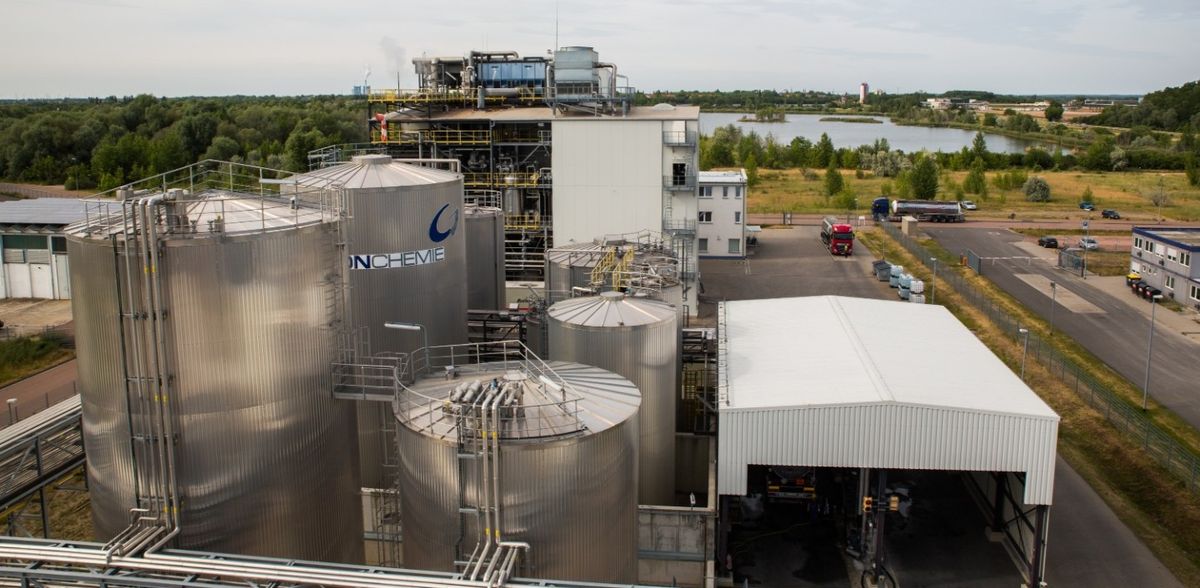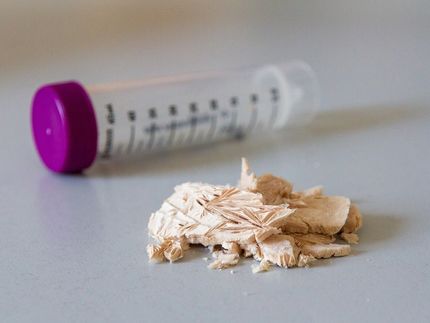Non-toxic plasticisers for use in elastomers and thermoplastics
Bio-based plasticizers from Central Germany
The Fraunhofer Institute for Microstructure of Materials and Systems IMWS is working with partners to develop a marketable, completely bio-based and non-toxic plasticizer for use in elastomers and thermoplastics. Using rapeseed oil as a starting product, more sustainable solutions for tires and packaging should become possible. The project partners also want to design a corresponding pilot plant in central Germany as part of the "Biocerine" project.
Plasticizers are used to make plastics more flexible and pliable during the manufacturing process and/or during subsequent use. However, common industrially produced plasticizers such as phthalates are viewed critically because some of them can be potentially harmful to health and/or pollute the environment.
"Such plasticizers are not only frequently used in traditional plastics, but also in biopolymers, whose environmental compatibility they then impair. For this reason, alternatives are being sought worldwide that offer at least comparable quality at affordable prices and can ideally be produced from renewable raw materials," says Dr. Patrick Hirsch, Group Leader "Sustainable Materials and Processes", who is leading the project at the Fraunhofer IMWS.
This is precisely the solution the partners want to find within the project, which is being funded by the Federal Ministry of Education and Research as part of the "WIR! - Change through Innovation in the Region" program. The consortium is relying on the expertise and opportunities already available in Central Germany. In addition to the Fraunhofer IMWS, GLACONCHEMIE GmbH and Polymer Service GmbH from Merseburg are also involved, while Folienwerk Wolfen, Expinos GmbH and Reifenwerk Heidenau GmbH will test the product samples created in the research project as associated partners.
The project partners are focusing on bio-based glycerine derivatives, which are obtained on an industrial scale from rapeseed oil, for example, and can be specially adapted to the requirements of different polymer materials. The new type of plasticizer should have improved migration behaviour in thermoplastic and elastomeric biopolymers, which has advantages in particular for the processability and long-term use of these materials. "Specifically, we want to produce alcohols from this bio-based glycerine, which are then esterified with special fatty acids. In the second step of the synthesis, their double bonds are epoxidized," says Hirsch, describing the approach. The bio-based plasticizers developed are then to be incorporated into thermoplastic and elastomeric biopolymers, for example for films, packaging or tire compounds.
The difficulties range from the choice of alcohol used for model formulations to the fatty acid composition and the modification of the double bonds of the fatty acids. At the same time, each new plasticizer variant leads to specific interactions in the respective polymer system, resulting in different properties of the plastic and initially unknown effects on processability. "Essentially, we have to ensure that the new plasticizers remain flexible, but limit their migration so that they do not harm the environment or health. They also have to interact ideally with the biopolymers we have chosen. Last but not least, the economic implementation is very challenging," says Hirsch.
Based on its expertise in the structure-property relationships of materials and the upscaling and optimization of manufacturing processes, the Fraunhofer IMWS will focus in particular on the property modification of thermoplastic biopolymers that are suitable for extrusion applications such as films or injection moulding applications such as packaging. Electron microscopy is used for morphological characterization, while mechanical and thermo-mechanical properties are determined by means of tensile, bending and notch impact tests as well as dynamic-mechanical analysis. The aim is also to scale up to pilot plant scale with the production of larger quantities of the novel plastics using twin-screw compounding, whereby a continuous dosing system for introducing the liquid glycerine derivatives into the melt mixtures is also to be developed.
The aim is to develop fully bio-based material systems and suitable manufacturing processes on an industrial scale that can be adapted for other biopolymers and used in existing processing machines without conversion. Hirsch: "If we succeed, we will have a very attractive plasticizer that can replace many current solutions. And we will create regional value chains in Central Germany, from the plant-based raw material to the finished bioplastic component."
Most read news
Topics
Organizations
Other news from the department science

Get the chemical industry in your inbox
By submitting this form you agree that LUMITOS AG will send you the newsletter(s) selected above by email. Your data will not be passed on to third parties. Your data will be stored and processed in accordance with our data protection regulations. LUMITOS may contact you by email for the purpose of advertising or market and opinion surveys. You can revoke your consent at any time without giving reasons to LUMITOS AG, Ernst-Augustin-Str. 2, 12489 Berlin, Germany or by e-mail at revoke@lumitos.com with effect for the future. In addition, each email contains a link to unsubscribe from the corresponding newsletter.





























































